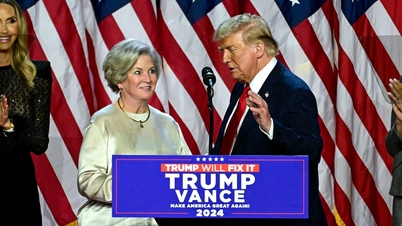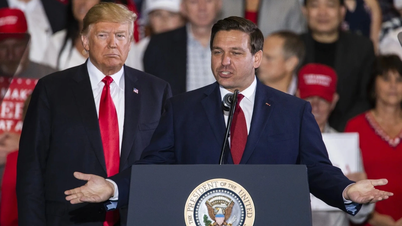Florida Governor Ron DeSantis has signed into law HB3 banning children under 14 from using social media, a measure aimed at protecting young people from risks that affect their mental health.

Under HB3, which is expected to take effect in January 2025, social media companies would be required to close accounts of children under 14 regardless of parental consent. The same measure would apply to accounts created by children under 16 without parental consent. Platforms that fail to do so could face lawsuits.
Minors can be awarded up to $10,000 in damages. Companies found to have violated the law could also be liable for up to $50,000 per violation, as well as attorneys’ fees and court costs.
The bill also requires social media platforms to use third-party review systems to screen out underage users who create accounts. It also prohibits minors from accessing pornographic websites and requires age verification to access these sites.
According to CNN, the document, which was just approved on March 25, also provides measures to protect children's mental health and prevent them from falling into a state of "social media addiction", which can cause unpredictable consequences related to violence and bullying at school, youth suicide trends, and sexual harassment in cyberspace...
In a statement, Governor DeSantis said that social media harms children in many different ways if not controlled by parents. The above law will make it easier for parents to protect their children when using social media.
However, there have been mixed views on the law. Supporters say it will help prevent the negative effects that social media has on children’s mental health due to excessive use of these platforms. Meanwhile, some argue that the provisions of the law go against the freedom of expression provided for in the US Constitution.
While the bill does not specify which social media platforms would be affected, HB3 does state that it applies to sites where more than 10% of “daily active users under the age of 16 spend an average of two hours online per day,” as well as those with “addictive features,” according to the Washington Post.
In response to the measure, Meta, the technology group that owns Instagram and Facebook, said the new rule would limit parental discretion and raise concerns about privacy as user information would be provided when age verification is performed. Social media platforms such as Instagram, Facebook and TikTok require users to be at least 13 years old, a requirement that stems from the 1998 Children's Online Privacy Protection Act, which prohibits the collection of personal data from children without parental consent.
In March 2023, Utah became the first US state to pass a law regulating children's access to social media, and other states including Arkansas, Louisiana, Ohio and Texas have since introduced similar measures.
HAPPY CHI
Source



![[Photo] Panorama of the Opening Ceremony of the 43rd Nhan Dan Newspaper National Table Tennis Championship](https://vphoto.vietnam.vn/thumb/1200x675/vietnam/resource/IMAGE/2025/5/19/5e22950340b941309280448198bcf1d9)
![[Photo] General Secretary To Lam attends the conference to review 10 years of implementing Directive No. 05 of the Politburo and evaluate the results of implementing Regulation No. 09 of the Central Public Security Party Committee.](https://vphoto.vietnam.vn/thumb/1200x675/vietnam/resource/IMAGE/2025/5/19/2f44458c655a4403acd7929dbbfa5039)

![[Photo] Close-up of Tang Long Bridge, Thu Duc City after repairing rutting](https://vphoto.vietnam.vn/thumb/1200x675/vietnam/resource/IMAGE/2025/5/19/086736d9d11f43198f5bd8d78df9bd41)
![[Photo] President Luong Cuong presents the 40-year Party membership badge to Chief of the Office of the President Le Khanh Hai](https://vphoto.vietnam.vn/thumb/1200x675/vietnam/resource/IMAGE/2025/5/19/a22bc55dd7bf4a2ab7e3958d32282c15)



























![[Photo] Prime Minister Pham Minh Chinh inspects the progress of the National Exhibition and Fair Center project](https://vphoto.vietnam.vn/thumb/1200x675/vietnam/resource/IMAGE/2025/5/19/35189ac8807140d897ad2b7d2583fbae)




























































![[VIDEO] - Enhancing the value of Quang Nam OCOP products through trade connections](https://vphoto.vietnam.vn/thumb/402x226/vietnam/resource/IMAGE/2025/5/17/5be5b5fff1f14914986fad159097a677)



Comment (0)